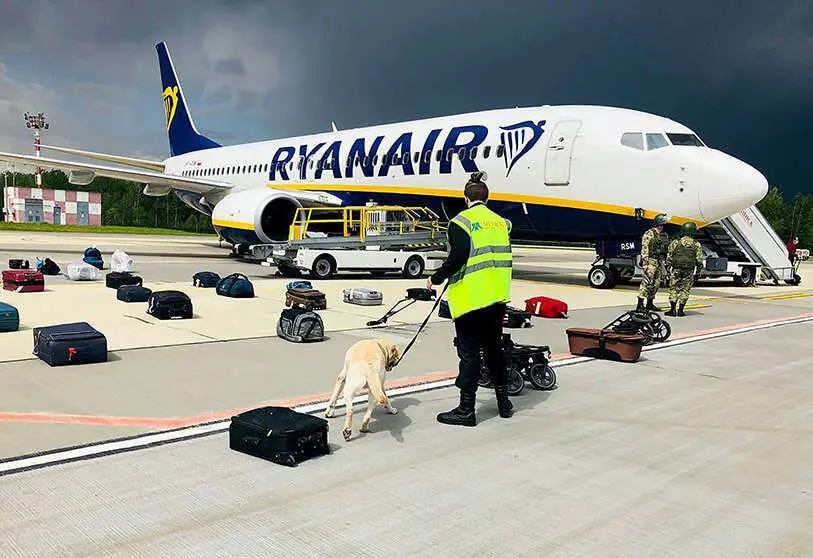Forced landing to detain dissident journalist in Belarus

The Belarusian government on Sunday forced an emergency landing of an Irish Ryanair plane at the airport in the Belarusian capital Minsk to detain a journalist considered an enemy of the regime headed by dictator Alexander Lukashenko. Flight FRY078, on route Athens-Vilnius, Lithuania, received an urgent bomb alert on board together with an urgent order to take to the ground to defuse it.
As soon as it landed on Belarusian soil, political police officers came on board and, to the astonishment of the rest of the passengers, unhesitatingly arrested Roman Protasevich in the seat where he was sitting and took him away in handcuffs without giving him any explanation. Later, other agents simulated a superficial search of the cabin without finding any suspicious devices. Neither the airport authorities nor, of course, the government provided any information about the incident.
It later emerged that the detainee is a well-known journalist, a dissident of the Lukashenko regime. He is the founder and editor of the online newspaper Nexta, which during the fraudulent elections revealed many of the arbitrary acts committed by the authorities both in the counting of the votes and in the use of violence against demonstrators who for several weeks protested against the official result blessed by Vladimir Putin from the Kremlin.
Protasevich was forced to flee and since then has remained in hiding in different countries, from where he continued to denounce the regime, which accused him of high treason. The charges against him, all of which, according to the official censors, involve improper use of freedom of expression, carry, as has been noted, a death sentence which those familiar with the regime's methods have no doubt will be carried out.
Protests against such a flagrant violation of air traffic regulations were immediately led by the Lithuanian government. The President of the Republic described what had happened as abominable, and other democratic governments immediately joined in the condemnation and announced their intention to appeal to the United Nations and high international courts of justice.
Journalists' organisations, newspapers and broadcasters and press freedom advocates around the world are also expressing their extensive denunciations of the plight of the media and information professionals in the last country in Europe that is reluctant to abandon the methods of censorship and repression that existed in the Soviet Union.

